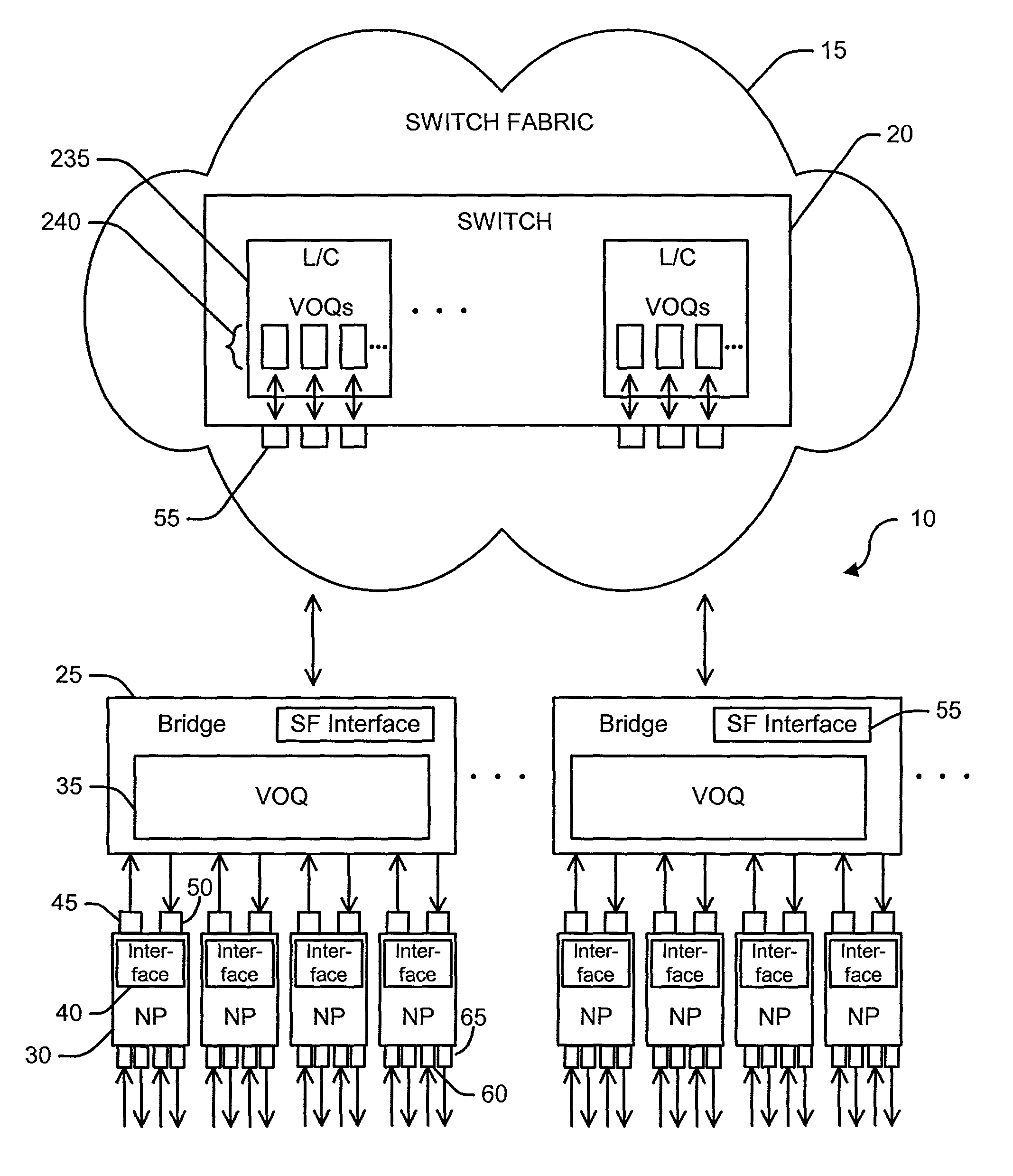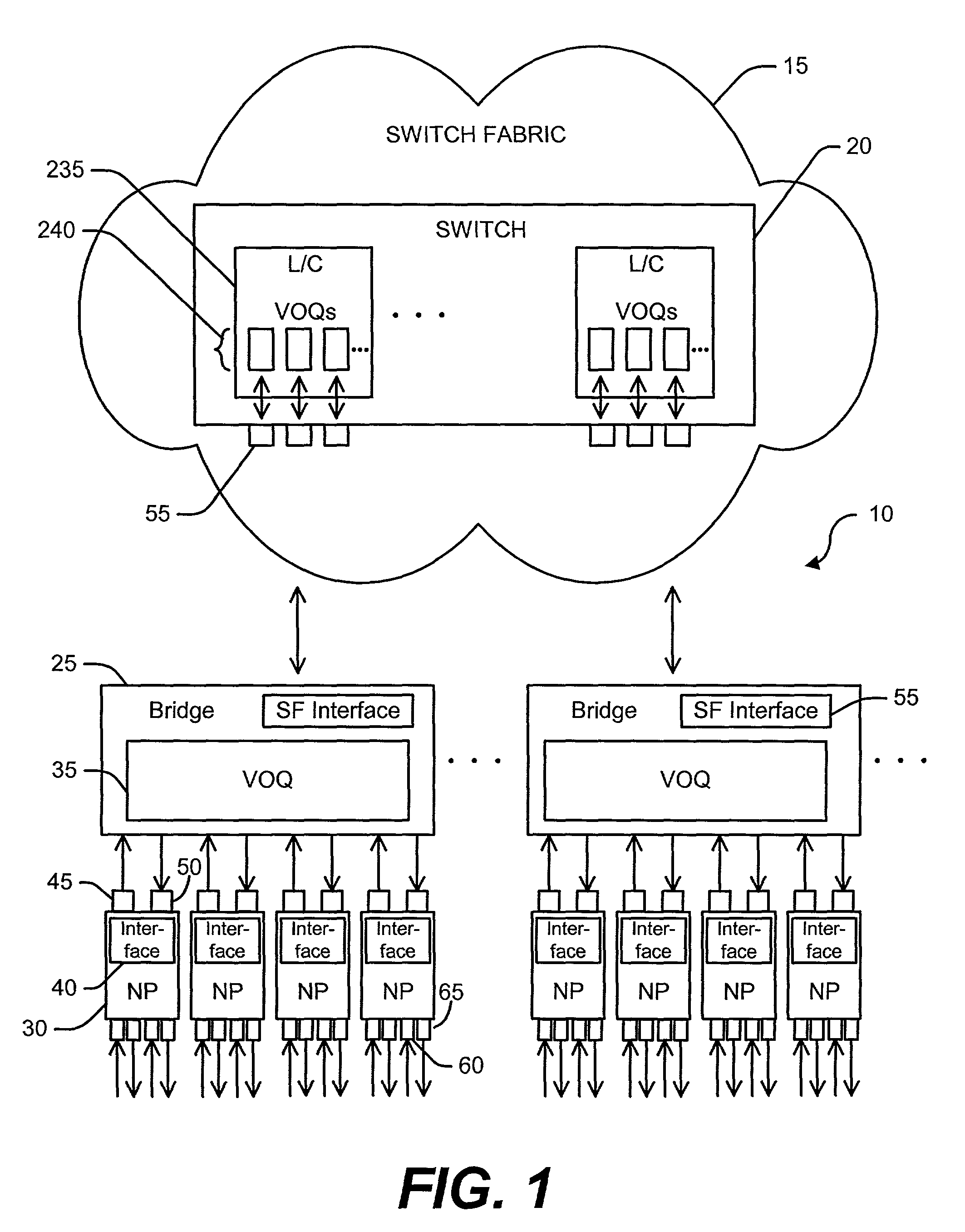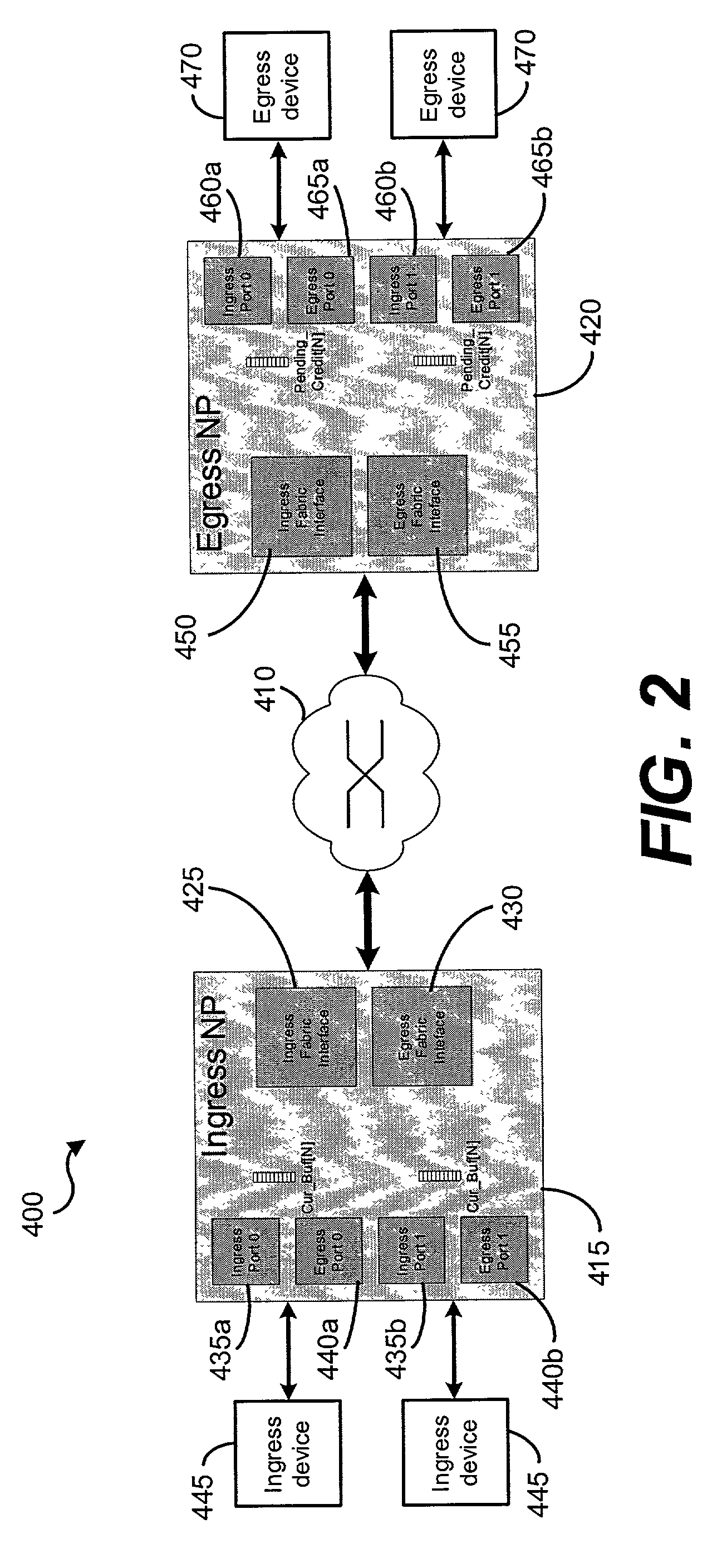Buffer to buffer credit flow control for computer network
a computer network and buffer technology, applied in the field of buffer to buffer credit flow control for computer networks, can solve the problems of hol blocking in standard protocols, san switches that share buffer resources, and san switches that share egress buffer resources are particularly susceptible to hol blocking, etc., to achieve efficient data streaming, reduce system latency, and eliminate hol blocking.
- Summary
- Abstract
- Description
- Claims
- Application Information
AI Technical Summary
Benefits of technology
Problems solved by technology
Method used
Image
Examples
Embodiment Construction
[0017]The present invention relates to a system and method for providing traffic flow control through a computer network, e.g., a SAN, at the system level. The presently disclosed system and method for flow control involves dynamic buffer-to-buffer flow control scheme that uses a credit / debit based scheme to manage traffic to a particular port. Generally, the flow control scheme limits the traffic associated with a selected port in the computer network based on the size and number of frames or packets that are to be passed through that port.
[0018]FIG. 1 shows a functional block diagram of a computer network 10. The exemplary embodiment of computer network 10 shown in FIG. 1 is a Fibre Channel SAN. Computer network 10 comprises a Fibre Channel protocol switching fabric 15. Switching fabric 15 comprises network switch 20. Network switch 20 may be any switch suitable for handling network traffic, such as a fibre channel switch or cross bar switch, for example. Computer network 10 also ...
PUM
 Login to View More
Login to View More Abstract
Description
Claims
Application Information
 Login to View More
Login to View More - R&D
- Intellectual Property
- Life Sciences
- Materials
- Tech Scout
- Unparalleled Data Quality
- Higher Quality Content
- 60% Fewer Hallucinations
Browse by: Latest US Patents, China's latest patents, Technical Efficacy Thesaurus, Application Domain, Technology Topic, Popular Technical Reports.
© 2025 PatSnap. All rights reserved.Legal|Privacy policy|Modern Slavery Act Transparency Statement|Sitemap|About US| Contact US: help@patsnap.com



